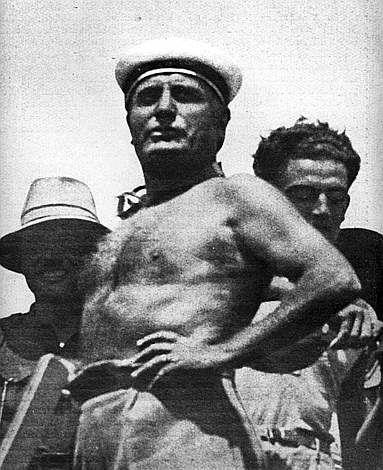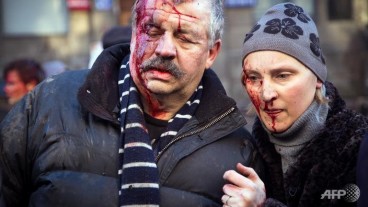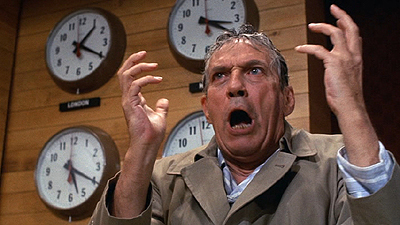 Right now the urge towards cynicism is so strong in me that I can hardly resist it. It is as if the moon has swollen to the size of Jupiter and moved so close to Earth I can look up at any time of day or night and feel its malicious power dominate my body and thoughts, the tidal flood so strong that I have the sensation of being wrenched off my feet. My anger, imprecise and scattered, has too many targets. I feel like a more controlled Howard Beale from Network. I want to shout out my fury to … I do not know … the individuals in charge of cleaning up the mess that human beings have made of our country.
Right now the urge towards cynicism is so strong in me that I can hardly resist it. It is as if the moon has swollen to the size of Jupiter and moved so close to Earth I can look up at any time of day or night and feel its malicious power dominate my body and thoughts, the tidal flood so strong that I have the sensation of being wrenched off my feet. My anger, imprecise and scattered, has too many targets. I feel like a more controlled Howard Beale from Network. I want to shout out my fury to … I do not know … the individuals in charge of cleaning up the mess that human beings have made of our country.
Everything is howling at once in this tidal surge. I feel like shutting off television, computer and radio, finding a cabin with a good stove and burrowing into nothing except the natural world — going out only for conversation and connections with actual human beings as contrasted with the nasty invasiveness of the entire media universe whose effect seems to be atomizing us into smaller and smaller tribes until we begin to think that only those exactly like ‘me’ are my compatriots. The stories, images and strident voices that foster that atomization make our country feel fragmented and infirm, our collective vitality dispersed into hollow amusements and sterile rage.
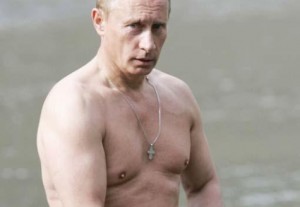 Those strident voices ring with discontent, and each claims that he or she is the authentic victim of injustice and that nothing matters, nothing, except individual sovereignty — not freedom, which implies a measure of responsibility to others, but Louis XIVth Sun King Divine Right Sovereignty. This translates to something very close to a belief in a comprehensive lack of restraint. In this bizarre libertarian universe restraint equals despotism. Then the base ingredient is added; some of those kings come packing great heaps of money, the real divinity of this collection of whatever we have become. If you have enough money, you can become a secular god and have it within your power to seriously compromise anyone else’s individual freedom, dreams, even his or her health.
Those strident voices ring with discontent, and each claims that he or she is the authentic victim of injustice and that nothing matters, nothing, except individual sovereignty — not freedom, which implies a measure of responsibility to others, but Louis XIVth Sun King Divine Right Sovereignty. This translates to something very close to a belief in a comprehensive lack of restraint. In this bizarre libertarian universe restraint equals despotism. Then the base ingredient is added; some of those kings come packing great heaps of money, the real divinity of this collection of whatever we have become. If you have enough money, you can become a secular god and have it within your power to seriously compromise anyone else’s individual freedom, dreams, even his or her health.
Sometimes it feels as if we are drifting toward a new version of feudalism, one where we are observed and owned by the alliance of global corporations and bankers and an amoral elite, where we will be miserable in our serfdom but placid — as long as we have someone else to blame and are encouraged to do so, and as long as we have our cheap Wal-Mart wares and our I-Phones and ear-buds and all those glowing screens into which we might descend into a distracted idiocy, the tools finally coming to rule us.
Benito Mussolini, 1930’s
And then shocks make their way through the din of music or the propaganda, and we take off the headphones and find that history is banging on the door – in Egypt and Syria, whose suffering innocents have learned the most bitter lesson of all – that their fellow human beings are capable of anything, any atrocity, any outrage, as long as they are able to retain power — and in Vladimir Putin, another of those tyrants with a head carved out of bone, his perfectly cynical eyes suspended over his mouth out of which issues one lie after another, as if his face had split in two; Vladimir Putin, who looks as if he could be Mussolini’s son – complete with that bleached out skull and the shirtless poses.
I do not know what will happen in the Crimea or the Ukraine## or in bleeding Syria except that ordinary people will suffer and if pushed hard enough will fight. History shows us again and again a vast slaughterhouse where innocence carries little weight, but history can also occasionally challenge cynicism, especially when we see the courage and idealism of those who set their bodies against state murder, oppression, and mafia governments.
Ukrainian protesters: 2.18.14
This is where teaching has forever altered my perceptions. For example, when I see young men and women on the streets of Kiev (or in Tahir Square in Cairo, or from long memory in Tiananmen Square 25 years ago), I automatically slide onto their faces the faces of children I have taught. Their cries become personal, not just detached images from a bewildering land. All that excitement, hope, fear and defiance resounds inside me like a bell being struck. The ones who stand against tanks and snipers are almost always the best of their generation, incandescent and audacious.
It is not only the young who I see on those streets. One night I watched a fiftyish, well-dressed man, an interpreter and teacher by trade, helping build a barricade, wiping blood from his face and ducking at the whine of bullets while speaking calmly and without bravado to the BBC interviewer about how he will fight against Yanacovich and the Berkut for his children and grandchildren. Watching him I felt something akin to love well up in me.
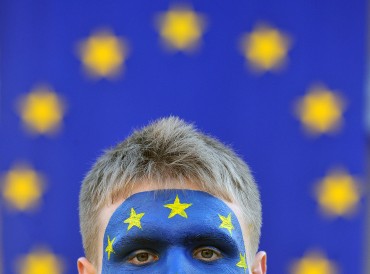 Ukrainian protestor: EU flag painted on his face: 12.5.13
Ukrainian protestor: EU flag painted on his face: 12.5.13
We cannot allow ourselves to be pushed into microscopic tribes, malignant with resentment. We cannot allow all those screens to control us or make us stupid, but neither can we retreat from them. The answer to the relentless pressure of modernity is not to be found in a forlorn cabin, a suspicious face at the window, a shotgun stretched across the knees that belong to that face. There is no place to hide. We have no choice but engagement. The frustration comes in finding an avenue of action that significantly improves the world or the lives of others – as if I should be doing set-up and troubleshooting chores for Doctors Without Borders in the Congo or slipping into the Crimea and sending out stories about the Russian occupation. I do not know another answer to this impression of powerlessness, this sense that one must do something life affirming and vital to counter ennui, despair, indignation and disorder. We have to find some way to contribute to a larger decency. Camus once wrote that “Where there is no hope, it is incumbent on us to invent it.” We have to find ways to invent hope and then bring it to an aching, committed life.
##These five writers, journalists, columnists and a former National Security Advisor provide a good place to begin trying to understand what is going on in the Crimea and in the conflict between Russia and the West:
Roger Cohen, foreign correspondent and columnist, the New York Times
Zbigniew Brezinski, former National Security Advisor
Anne Applebaum, historian of the Gulag and Washington Post columinist
David Ignatius, foreign correspondent and Washington Post columnist
Charles Krauthammer, Washington Post Columnist
